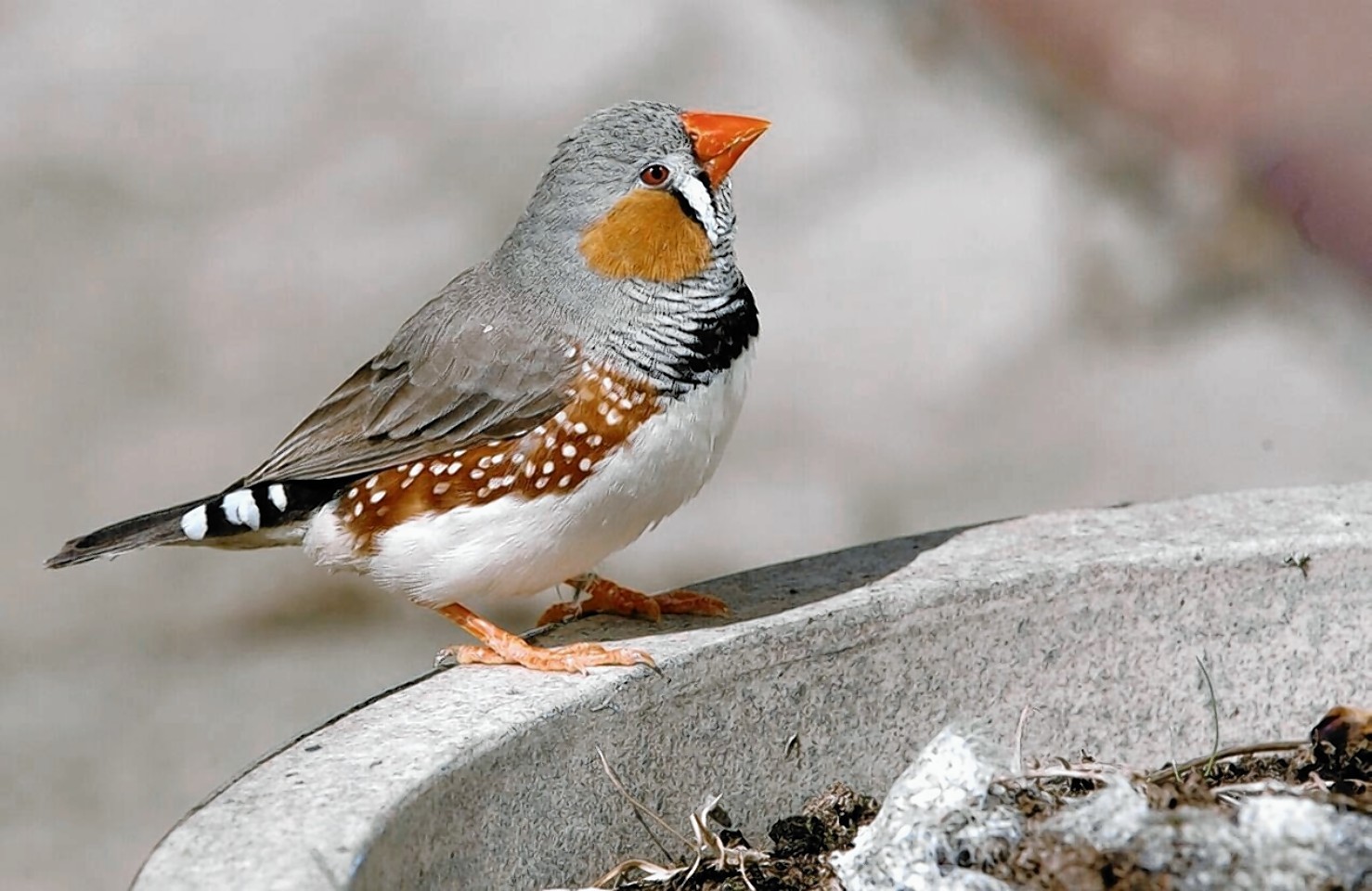Stress makes young birds fly the nest sooner – and encourages them to be more sociable in later life, new research has shown.
A study published yesterday by scientists at the universities of St Andrews and Oxford found zebra finches which were stressed as nestlings were less choosy about who they visited bird feeders with in later life, and so had more associates.
This made them better placed for finding food in winter when supplies became scarce.
Neeltje Boogert, who led the study, said the research could have important implications for determining how populations respond to increasingly disturbed and variable environments.
He worked alongside Karen Spencer and Damien Farine to publish the work in the Royal Society journal Biology Letters.
The team increased levels of stress hormones in zebra finch chicks and tested how this affected their social foraging behaviour in later life.
The birds were fitted with unique chips which allowed scientists to record their visits to bird feeders over a five-week period.
Mr Boogert explained: “In natural populations, chicks whose parents cannot find enough food to feed them experience similar increases in stress hormone levels. As a result, birds may have developed a mechanism that prompts them to leave their natal environment sooner in search of better places to live.”
The chicks which were stressed during early development were not only less choosy about their company when they visited bird feeders, they also showed more independence from their parents in their visits, and associated more randomly with other members of the flock.
This resulted in the chicks being more connected in their social network, which previous research has shown increases the chance of finding food in winter when regular sources dry up.
Dr Farine said this adaptability could give them the edge over their more settled rivals.
“If food becomes scarcer or less reliable, we could see more movement by these developmentally-stressed birds once they fledge, leaving their local area and dispersing more widely,” he said.
“This could thus have major implications for maintaining locally-adapted behaviours and genetic structure across different sub-populations.”
